Laura Jane Grace interview: Punk's transgender pioneer on her struggle for acceptance
It's not her furious sound or punk attitude that has brought Laura Jane Grace face-to-face with hostility. It’s simply that she is a woman. As she prepares to rock out at the Reading Festival, the singer tells Fiona Sturges about the struggles of transitioning from life as a man – and the courage given to her by a new set of fans
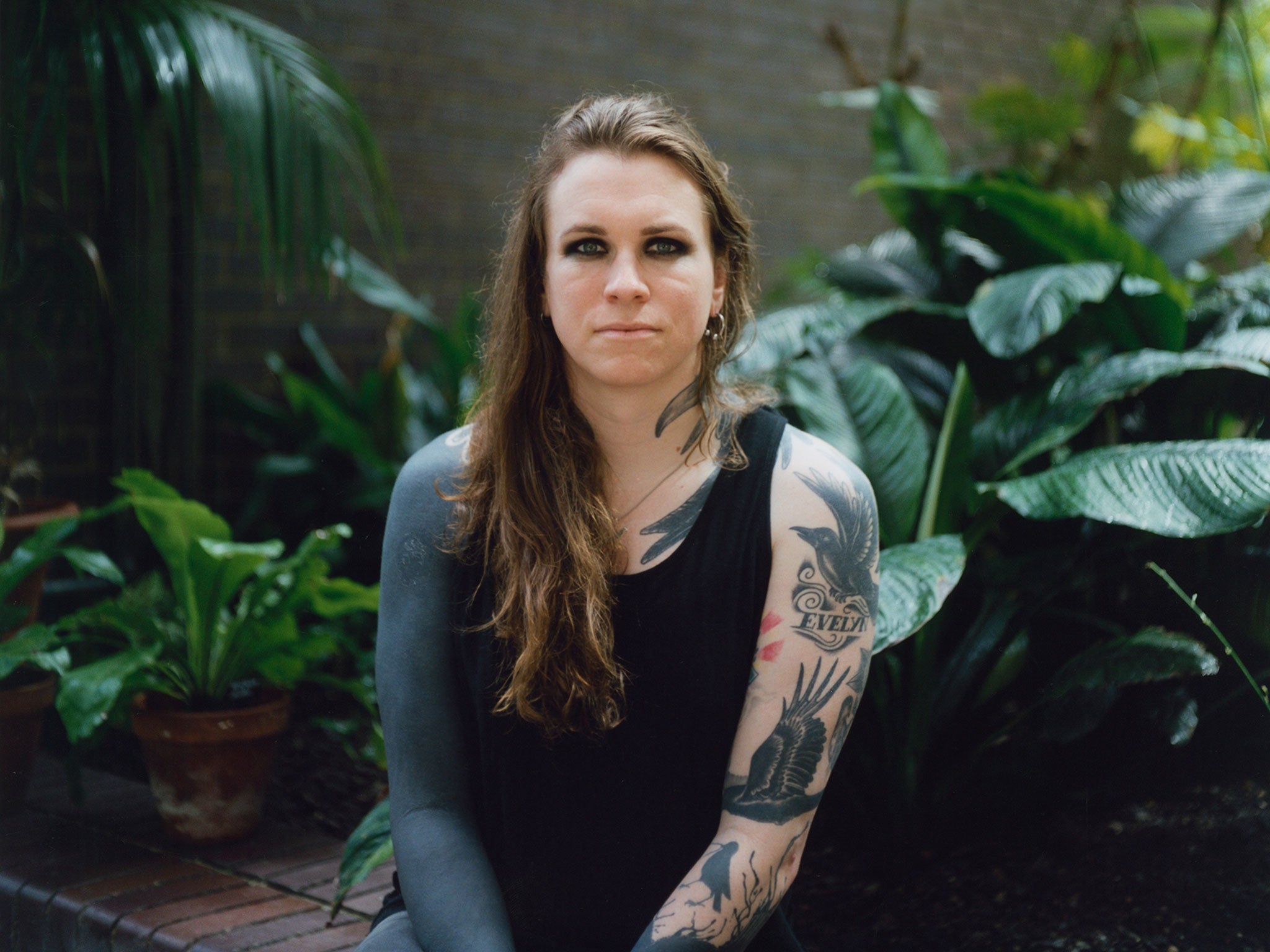
Your support helps us to tell the story
From reproductive rights to climate change to Big Tech, The Independent is on the ground when the story is developing. Whether it's investigating the financials of Elon Musk's pro-Trump PAC or producing our latest documentary, 'The A Word', which shines a light on the American women fighting for reproductive rights, we know how important it is to parse out the facts from the messaging.
At such a critical moment in US history, we need reporters on the ground. Your donation allows us to keep sending journalists to speak to both sides of the story.
The Independent is trusted by Americans across the entire political spectrum. And unlike many other quality news outlets, we choose not to lock Americans out of our reporting and analysis with paywalls. We believe quality journalism should be available to everyone, paid for by those who can afford it.
Your support makes all the difference.In May 2012, Tom Gabel, the singer of the US punk band Against Me!, gave an interview to Rolling Stone magazine in which it was revealed that he was a transgender woman who was beginning a process of transition, and who, from then on, would be known as Laura Jane Grace.
It was with astonishing candour that Grace told of the pain of a life lived in disguise, and of the love and support she had received from her wife Heather, her young daughter Evelyn, and her fellow band members since coming out. The next night she performed a concert in San Diego in full make-up, to the overwhelming approval of fans. After a lifetime of misery, Grace could finally be herself.
"There was a surge of momentum," she recalls. "It's almost like you're pushing this rock up a hill, and you finally reach the top and then it just rolls down. At the time I was just willing to tell anybody; it felt great every time I voiced it."
But when the tour finished and the media frenzy died down, Grace was left with the aftermath. There were the hormone treatments wreaking havoc with her system, at one stage leaving her with a parasitic infection in her intestines that caused flash fevers and short-term paralysis in her arms. There was the band, thrown into disarray after her bass player and drummer left in quick succession. (Grace says neither exit had to do with her coming out.) And there was Heather – alone with their daughter again as her husband, now wife, crisscrossed the globe, her head spinning with questions, among them one put to her by Rolling Stone: "So, now you're a lesbian?"
"Yeah, they said that," sighs Grace. "And that was, I'm sure, the reaction she got from a lot of people. So she's put into this position where she's questioning herself. And, you know, every relationship is complicated. I don't want to attribute [our problems] specifically to me being trans, though I'm sure it did play a part. But I'm in a band and gone all the time, and I definitely withdrew. It caused our marriage to break down."
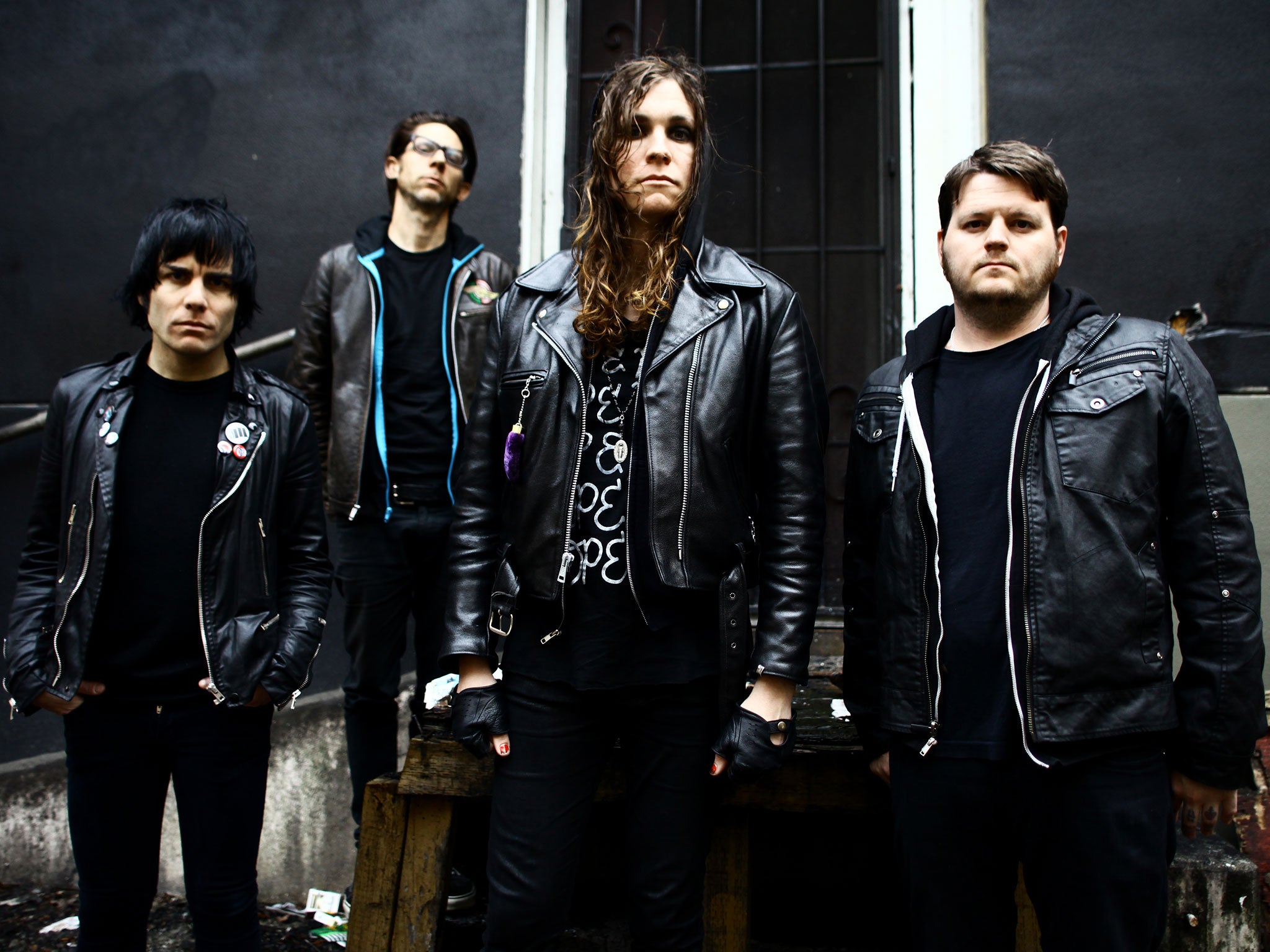
By the summer of 2013, Grace was divorced, exhausted and, with the band on temporary hiatus, entirely alone. At her lowest ebb since her early teens, she attempted suicide with a combination of pills and alcohol.
The pain of the memory is clear, yet Grace – who is the sweetest, most thoughtful and open-hearted rock star you're likely to meet – says she's comfortable having such things out in the open. She hopes her story will give hope and courage to scores of other transsexuals engaging in their own struggle for acceptance.
We are sitting in a pub in east London, around the corner from a small café where she is due to play a free acoustic set in a few hours. The show was announced just 24 hours ago and her fans, with their multiple tattoos, technicolour hair and shy expressions, have been sitting on the pavement outside since the early hours in the hope of getting a decent spot.
Grace is sanguine about the lifestyle that comes with playing 200 shows a year. "I started this band at the age of 17 and I'm about to be 35. You get used to going some place new all the time, meeting new people and sleeping in a vehicle that's moving down the road at 70 miles an hour."
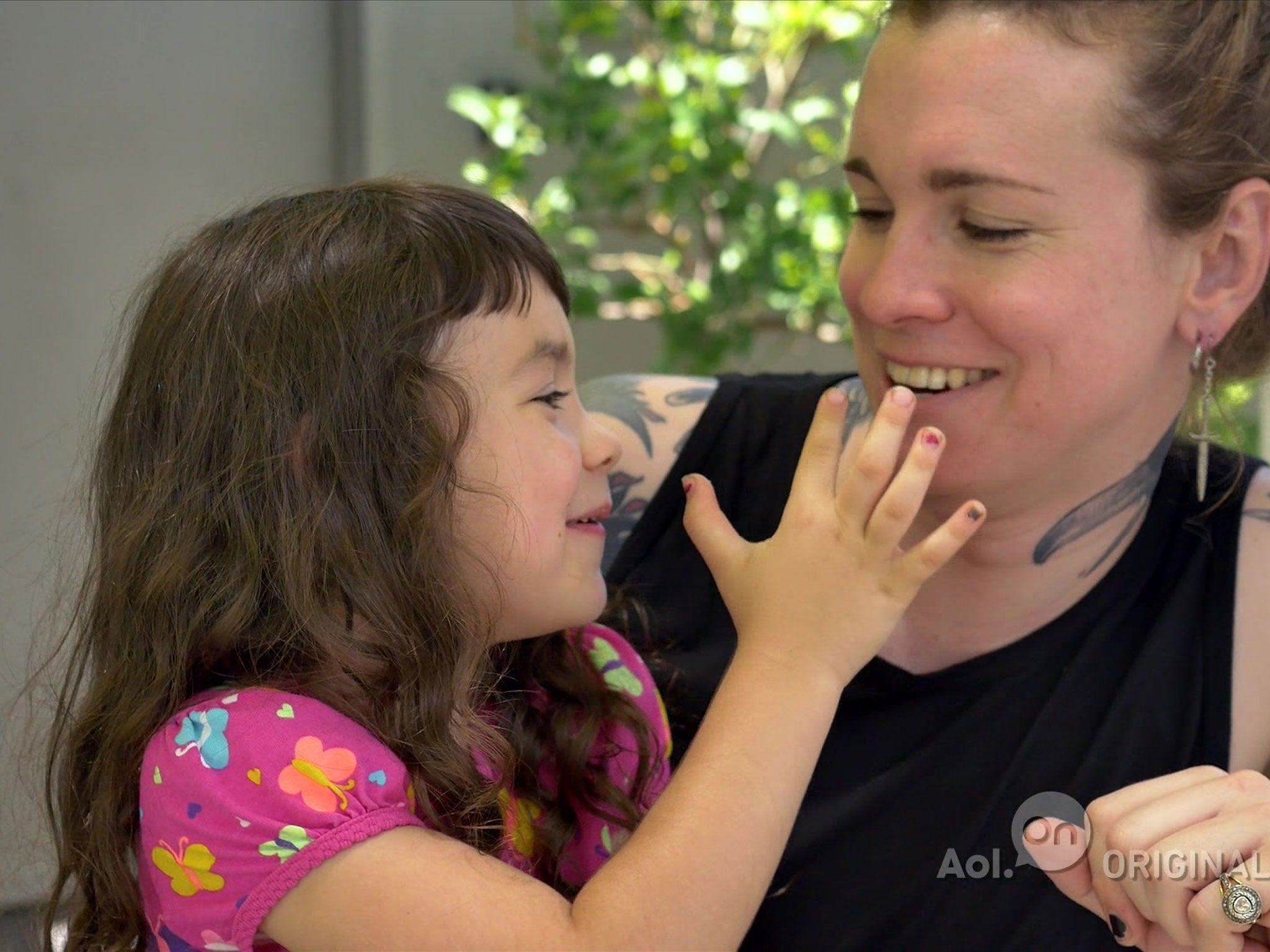
Though Against Me! have been around since 1997, it wasn't until their move to a major label 10 years later that they found commercial success, touring with Foo Fighters and working with Nirvana producer Butch Vig. Their music – loud, furious guitar rock – has remained largely unchanged over the years, although, since coming out, Grace has noticed "more of a queer presence at shows. There's also been a change in vibe. I've heard venue staff comment on how nice and friendly the kids who come to see us are. Whereas in the past they were, like, 'Just get the f**k out of here.'"
She notes that the day-to-day prejudice endured by trans people hasn't altered much. "I've been told I'm going to hell and I've been blocked from using restrooms, though actually the most frequent incidence of people being jerky is from TSAs [US airport security] when they pat you down," she says.
Yet Grace has observed a greater engagement with trans issues in recent years, a situation boosted by the rise of the actress Laverne Cox, who recently appeared on the cover of Time magazine with the headline "The Transgender Tipping Point", and the coming out of athlete-turned-reality star Caitlyn Jenner. "I'd never have imagined it when I was younger," she smiles. "A trans woman on the cover of Time? That is unfathomable to the 15-year-old me."
Grace can't remember a time when she has felt at home in her own body. She describes the feeling of gender dysphoria as "a misalignment, of being painfully self-aware on an existential-dread level that the way you are perceived by other people doesn't match up with the way you perceive yourself inside".

She first became conscious of it aged five, while watching a Madonna concert on TV. Her overwhelming feeling was of self-recognition. "It was not only, like, 'That's what I want to do,' but 'That's who I am.'" This was followed by the realisation that she couldn't be, since, "That's not what [my family] perceived me to be. My parents were telling me I was a little boy, and so I understood that it was something I shouldn't talk about, and that I felt shameful about."
As she grew up, the dysphoria would come in waves (for a while she thought she had schizophrenia). In a pattern that she describes as "bingeing and purging", there were periods when she would decide that she was male and focus all her energies into inhabiting the role of a man. But at other times she found maintaining the pretence of masculinity impossible.
"You push [the dysphoria] out, but it keeps coming back. You feel that way at the age of five, then at 10, and then you feel that way at 15, 20, 25. Then I was like, 'OK, I'm 30 and I still feel this way. I'm still going to feel this way when I'm 40.'"
Grace doesn't think she even heard the word "transgender" until she was 20, and had little grasp of the concept of transitioning. The internet was crucial as a source of information and in helping her to understand who she was.
Now she has taken her first steps towards becoming herself via medical means, although, like so many trans men and women, she has no idea where the process will end. "I like the idea of shape-shifting," she says. "I like the idea that the body is a vessel, that it's not necessarily representative of the real you that's inside of it. As technology and science advances, I think the ability to alter yourself should be embraced."
One piece of advice from a Chicago therapist has stuck with her. "She said, 'No one ever ends up the vision of what they thought they wanted to look like when they finish transitioning.'"
Listening to Grace talk about how she is seen by others – "A lot of people don't perceive me as female or trans, they just see some rocker" – there's a clear tension between her desire to pass as female, and another part of her that wishes people would simply accept her as she is.
"I still struggle with dysphoria on a daily basis," she adds. "It's not like I came out and it had gone. That's the struggle. It's like, 'F**k you, accept me as I am' – but at the same time I still have trouble accepting myself."
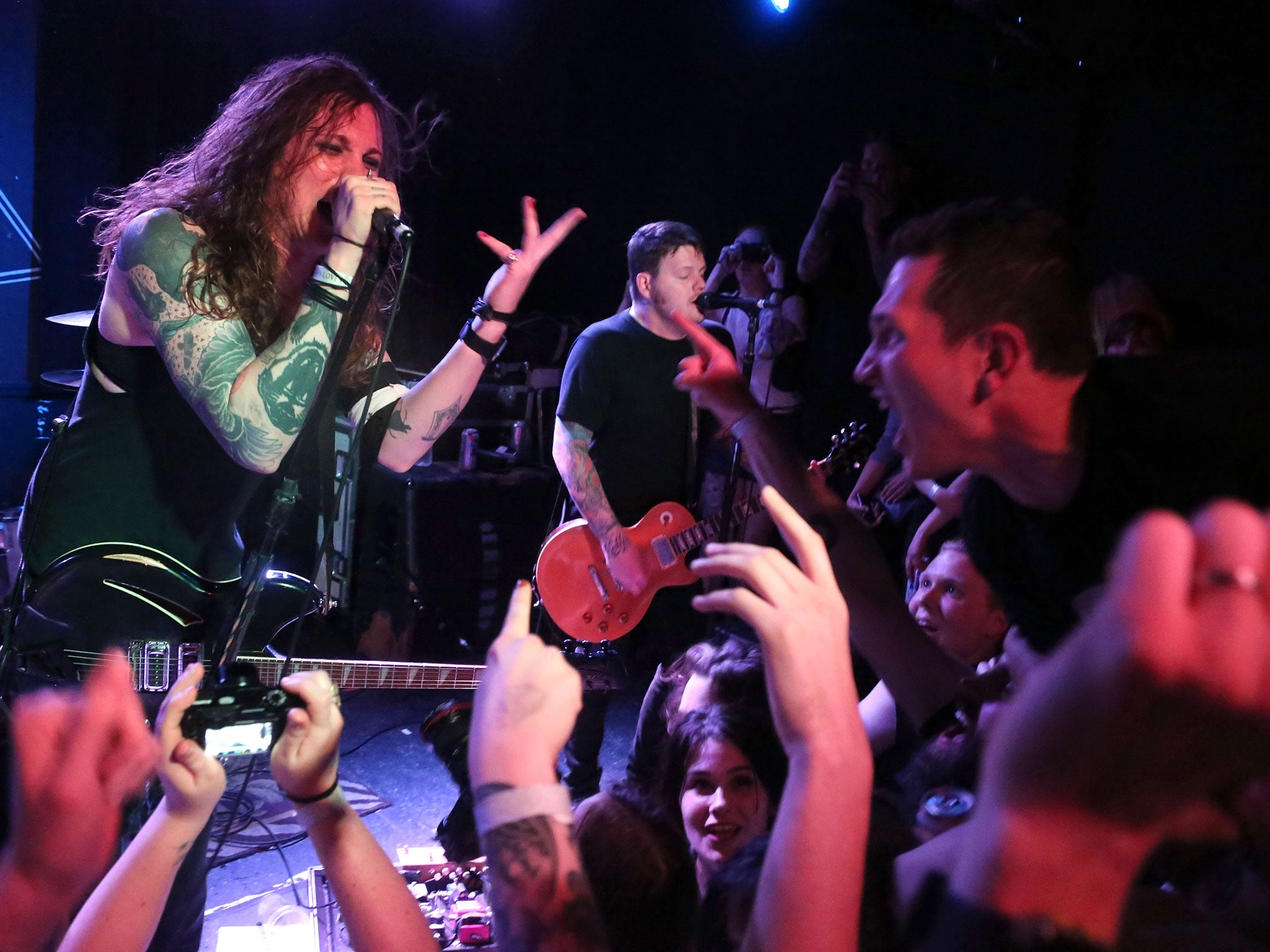
Born in Fort Benning in Georgia, Grace was the eldest child of a military-recruiter father. The family moved all the time, first to Pennsylvania, then to Ohio and later to Texas. When Grace was eight, they moved to Naples in Italy. Then, when her parents split, she moved with her mother and younger brother to Florida.
"It was hard being young and having to remake friends every few years. It was easier in the context of a military family and living around bases when all the kids did that. But when I moved to Florida, that changed. Most of the kids there had been to primary school together, so I was immediately the odd one out."
Grace soon discovered music, particularly that of the 1980s metal bands that blurred gender lines with the help of lipstick and hairspray. Later, she discovered Green Day and Nirvana, gateways to her love of punk. It seems surprising, I say, that she should have been drawn to a genre known for its machismo. "For me, the attitude seemed more about fighting back, and I thought, 'OK, well, if I'm going to get beaten up, at least I'll get a couple of punches in.' There was also the feeling that punk rock was a place for misfits and freaks, and those were the kids I associated with. The nihilism was attractive, too. When there's a punk band singing 'No future' to you, you feel like, 'Yeah, no future. I'm never making it out of this place alive.'"
This sense of hopelessness was exacerbated by a run-in with police during Independence Day celebrations in Florida. While she was looking for her friends near the beach, two officers told her to get off the boardwalk as she was blocking the flow of people. "Later they came up and started harassing me. I was 14 and a punk, so I probably gave them some lip, and it escalated."
Grace was handcuffed, thrown on the ground and hogtied. She was charged with resisting arrest and violence and battery against a police officer; she was sentenced to 180 hours of community service. "It was eye-opening," she reflects. "My incidents with police brutality don't compare to others', but I was 14, I got beat up, I was scared, I was in jail, and it was terrifying."
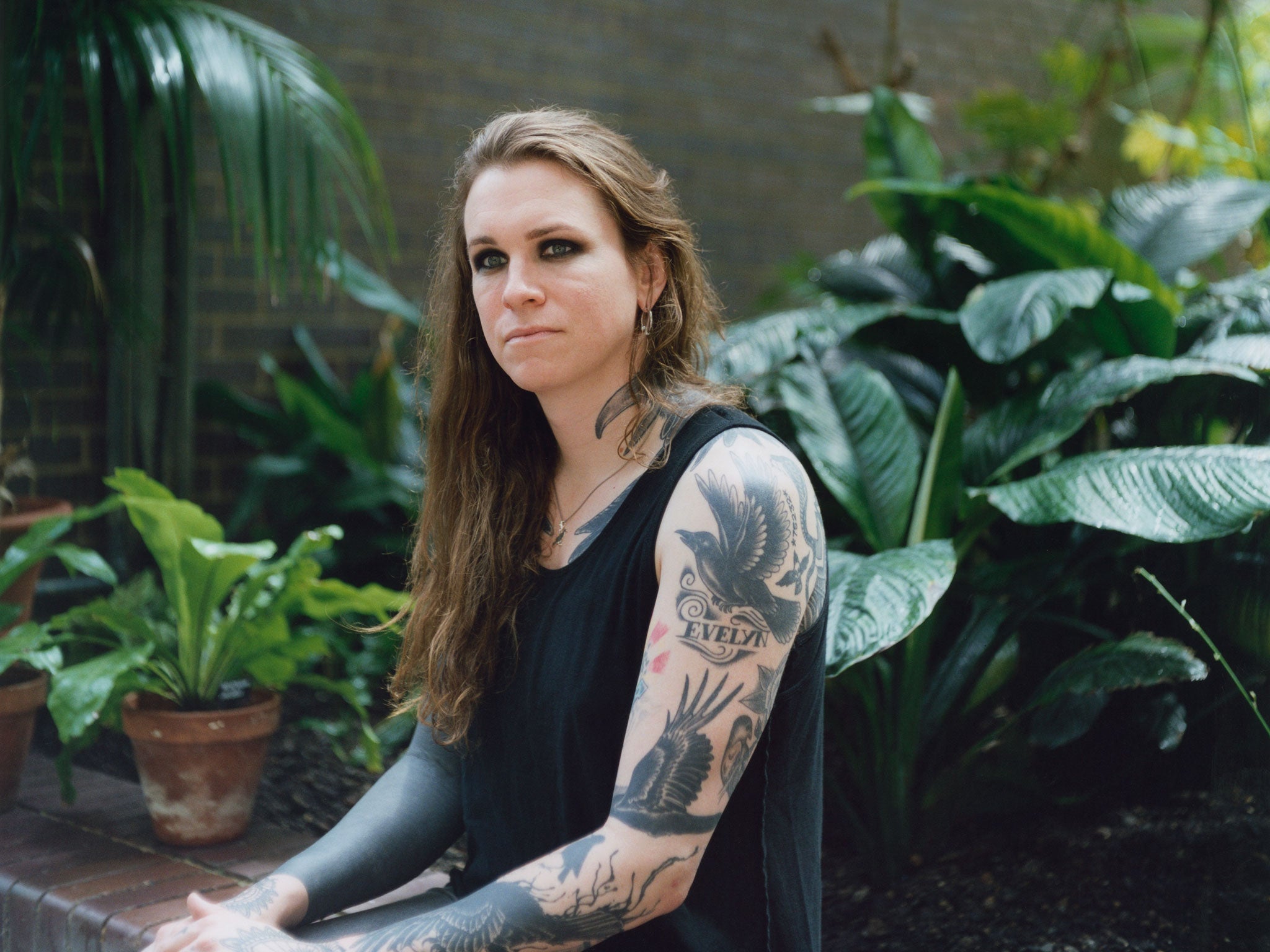
At 17, Grace started Against Me! with a school friend, the guitarist James Bowman. At the same time, she became involved in local activism, including with the Florida Radical Activist Network, which organised protests dedicated to political and social change. "I was angry both about my situation and at the state of the world. I wanted to make a difference," she recalls.
It's a conviction that she carries today as an advocate of trans awareness. The songs on Against Me!'s 2014 album are loud and proud in their references to the trans experience, a stark contrast to past LPs, the lyrical content of which was deliberately oblique.
Last year, Grace made the 10-part online series True Trans with Laura Jane Grace, in which she examined issues such as dysphoria, relationships, transitioning and trans parenting (the scene in which she and her daughter go for a manicure is adorable). Over the course of the series she has moving and frank conversations with fellow transsexuals, who each share their hard-won wisdom. Last month, the series was nominated for an Emmy award.
Grace has found catharsis and comfort in her growing network of trans friends and fans, though she notes that there's still a long way to go, both in terms of cultural awareness and also in personal terms. "Meeting other people, and hearing other experiences, has been invaluable," she says. "There's no map for this. Like everyone else, I'm still figuring it out as I go."
Against Me! play Shepherd's Bush Empire on Saturday and Reading Festival next Sunday. The live album '23 Live Sex Acts' is released on 4 September. 'True Trans with Laura Jane Grace' can be seen at on.aol.com/truetrans
Join our commenting forum
Join thought-provoking conversations, follow other Independent readers and see their replies
Comments